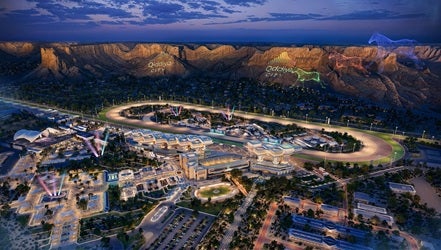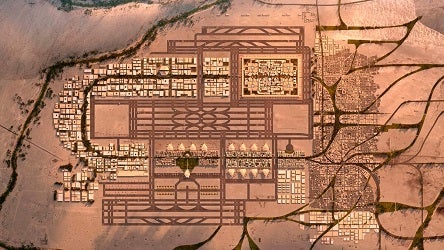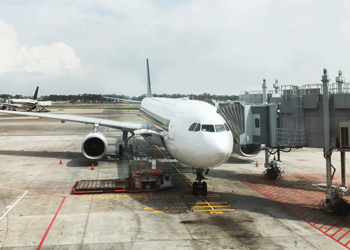Regional downstream sector prepares for consolidation
30 December 2024

The Middle East and North Africa (Mena) region’s midstream and downstream oil, gas and petrochemicals sectors together had one of their best years on record in 2024, with state-owned companies and private players collectively spending close to $38bn on projects.
 Saudi Arabia emerged as the biggest regional spender on midstream and downstream projects. To address incremental volumes of gas entering the grid as Saudi Aramco increases its conventional and unconventional gas production, the state enterprise has spent more than $17bn on gas processing and transportation projects this year.
Saudi Arabia emerged as the biggest regional spender on midstream and downstream projects. To address incremental volumes of gas entering the grid as Saudi Aramco increases its conventional and unconventional gas production, the state enterprise has spent more than $17bn on gas processing and transportation projects this year.
In April 2024, Aramco awarded $7.7bn in engineering, procurement and construction (EPC) contracts for a project to expand the Fadhili gas plant in the Eastern Province of Saudi Arabia. The project is expected to increase the plant’s processing capacity from 2.5 billion cubic feet a day (cf/d) to up to 4 billion cf/d.
On 30 June, Aramco awarded 15 lump-sum turnkey contracts for the third expansion phase of the Master Gas System (MGS-3), worth $8.8bn. Then, in August, the company awarded contracts for the remaining two packages of the MGS-3 project, which were worth $1bn.
Saudi Aramco divided EPC works on the MGS-3 project into 17 packages. The first two packages involve upgrading existing gas compression systems and installing new gas compressors. The 15 other packages relate to laying gas transport pipelines at various locations in the kingdom.
The Master Gas System expansion will increase the size of the network and raise its total capacity by an additional 3.15 billion cf/d by 2028 with the installation of about 4,000 kilometres
of pipelines and 17 new gas compression trains.
 Abu Dhabi capex
Abu Dhabi capex
The UAE has been the second-largest spender on midstream, downstream and chemicals projects in 2024, led by investments from Abu Dhabi National Oil Company (Adnoc) and Taziz – its 60:40 joint venture with industrial holding entity ADQ.
Adnoc’s biggest capital expenditure (capex) was in the form of a $5.5bn EPC contract that it awarded to a consortium of France’s Technip Energies, Japan-based JGC Corporation and Abu Dhabi-owned NMDC Energy to develop a greenfield liquefied natural gas (LNG) terminal complex in Ruwais.
The upcoming Ruwais LNG export terminal will have the capacity to produce about 9.6 million tonnes a year (t/y) of LNG from two processing trains, each of which has a capacity of 4.8 million t/y. When the project is commissioned, Adnoc’s LNG production capacity will more than double to about 15 million t/y.
Adnoc Group subsidiary Adnoc Gas has also advanced a project to expand its sales gas pipeline network across the UAE, which is known as Estidama. The Abu Dhabi-listed company has awarded two EPC packages of the project this year, which together were worth more than $500m.
Adnoc Gas is expected to award the contract for another Estidama package before the end of 2024 that covers the construction of a pipeline that will provide feedstock from its Habshan gas processing plant to the upcoming Ruwais LNG complex.
Taziz, meanwhile, awarded three EPC contracts totalling $2bn for infrastructure works at the industrial chemicals zone that it is developing in Ruwais Industrial City.
Spending to plateau
Having reached a peak in spending, and with EPC contracts awarded for strategic midstream, downstream and chemicals projects in 2024, the Mena region is set to enter a period of more pragmatic project spending in 2025. However, this does not imply that a slump in project capex is likely, and the region could once again equal the level of contract awards made in 2024.
One of the largest projects that may be awarded in 2025 is the main contract for the North Field West LNG project – the third phase of QatarEnergy’s LNG expansion programme.
The North Field West project will have an LNG production capacity of 16 million t/y, which is expected to be achieved through two 8 million t/y LNG processing trains, based on the two earlier phases of QatarEnergy’s LNG expansion programme.
 The new project will draw feedstock for LNG production from the western zone of Qatar’s North Field offshore
The new project will draw feedstock for LNG production from the western zone of Qatar’s North Field offshore
gas reserve.
Taziz is also on course to make progress with the second expansion phase of its derivatives complex, which will more than double the number of chemicals produced at the industrial hub. The expansion’s centrepiece will be a large-scale steam cracker that will supply feedstocks to the several new chemical plants earmarked for third-party investments.
In Saudi Arabia, there has been speculation that Aramco may be revisiting its investment strategy and execution approach for its strategic liquids-to-chemicals programme.
The aim of the programme is to derive greater economic value from every barrel of crude produced in the kingdom by converting 4 million barrels a day (b/d) of Aramco’s oil production into high-value petrochemicals and chemicals feedstocks by 2030.
Aramco has divided its liquids-to-chemicals programme into four main projects. It took a major step forward
in September 2023 by selecting US firm KBR, France’s Technip Energies, UK-based Wood Group and Australia- headquartered Worley to provide project management consultancy services for the four different segments of the scheme.
Progress on a programme as big as the liquids-to-chemicals scheme is expected to be measured and laboured.
While day-to-day the advancement might appear sluggish, Amin Nasser, Aramco’s president and CEO, said earlier in 2024 that the Saudi energy giant is on track to achieve its crude oil-to-chemicals conversion goal by 2030.
“We are on track to achieve our target of 4 million b/d liquids-to-chemicals [conversion capacity] by 2030,” he said.
Meanwhile, Kuwait is in a similar situation with its planned Al-Zour integrated complex upgrade programme (Zicup), which has suffered significant delays in recent years. However, state-owned Kuwait Integrated Petroleum Industries Company (Kipic), the project’s operator, recently appointed a team to look into the logistics of developing a benzine pipeline as part of the estimated $10bn Zicup scheme.
Although this may be a small step, it does indicate that Kuwait remains determined to achieve its ambition of developing a large-scale petrochemicals facility, which, when integrated with its $16bn Al-Zour refinery, could become one of the biggest integrated refining and petrochemicals complexes in the Mena region.

Exclusive from Meed
-
 AI signals a new efficiency era for oil and gas
AI signals a new efficiency era for oil and gas11 February 2026
-
 February deadline for Qiddiya racecourse bids
February deadline for Qiddiya racecourse bids11 February 2026
-
 King Salman airport signs mixed-use project agreements
King Salman airport signs mixed-use project agreements11 February 2026
-
 Saudi Arabia signs $5.3bn Syria reconstruction deal
Saudi Arabia signs $5.3bn Syria reconstruction deal11 February 2026
-
 Indian firm wins contract for UAE battery project
Indian firm wins contract for UAE battery project11 February 2026
All of this is only 1% of what MEED.com has to offer
Subscribe now and unlock all the 153,671 articles on MEED.com
- All the latest news, data, and market intelligence across MENA at your fingerprints
- First-hand updates and inside information on projects, clients and competitors that matter to you
- 20 years' archive of information, data, and news for you to access at your convenience
- Strategize to succeed and minimise risks with timely analysis of current and future market trends

Related Articles
-
 AI signals a new efficiency era for oil and gas
AI signals a new efficiency era for oil and gas11 February 2026
Artificial intelligence (AI) is poised to deliver one of the biggest leaps in operational efficiency the oil and gas industry has seen in decades – but not in the ways most expect. In a sector where progress is typically measured in micro-optimisations, harsh terrain, sprawling pipelines and escalating security risks make even small improvements valuable. Now, machine learning, edge computing, the industrial internet of things (IIoT), cloud and big data are converging into something far more disruptive.
 A major global oil and gas player recently tested an intriguing Proof of Concept with Nokia, leveraging existing fiber buried along pipelines for real-time “fiber sensing.” What they uncovered could reshape how infrastructure threats are detected. Optical fiber, it turns out, is sensitive enough to register disturbances caused by everything from rainfall to trucks, earthquakes and human intrusion. When paired with long-range anomaly detection, the implications for pipeline safety stretch far beyond routine monitoring. Just how precise – and how operational teams might act on these signals – remains part of the unfolding story.
A major global oil and gas player recently tested an intriguing Proof of Concept with Nokia, leveraging existing fiber buried along pipelines for real-time “fiber sensing.” What they uncovered could reshape how infrastructure threats are detected. Optical fiber, it turns out, is sensitive enough to register disturbances caused by everything from rainfall to trucks, earthquakes and human intrusion. When paired with long-range anomaly detection, the implications for pipeline safety stretch far beyond routine monitoring. Just how precise – and how operational teams might act on these signals – remains part of the unfolding story.Telemetry data, already flowing in vast quantities between remote operations and headquarters, is fuelling even more ambitious AI use cases. Predictive bandwidth scaling, digital twinning, precision timing optimisation and automated network reconfiguration are all being explored to strengthen performance and resiliency. But with high innovation comes high stakes: one model glitch could invalidate results, burn time and inflate costs. How companies balance the promise of AI with the risks of over-automation is a tension worth watching.
Then there’s the looming security horizon. Cybercrime already threatens data-heavy operations, but oil and gas firms are increasingly preparing for something even more destabilising – the quantum threat. While cryptographically relevant quantum computers aren’t here yet, adversaries are already stockpiling encrypted data using Harvest Now Decrypt Later tactics. Multi-layer encryption defences like OTNsec, ANYsec and MACsec offer new protective possibilities, but questions remain around scalability, adoption barriers and readiness timelines.
To unlock AI’s full potential, oil and gas networks must evolve to deliver extreme speed, low latency, massive compute support and future-proof security. Nokia has built solutions across all these fronts, including private 4G/5G for remote industrial environments. But what specific breakthroughs lie ahead – and how soon they could impact global operations – is where the real curiosity begins.
The summary hints at the disruption. The details? That’s inside the full article here.
Published in partnership with
 https://image.digitalinsightresearch.in/uploads/NewsArticle/15627990/main.gif
https://image.digitalinsightresearch.in/uploads/NewsArticle/15627990/main.gif -
 February deadline for Qiddiya racecourse bids
February deadline for Qiddiya racecourse bids11 February 2026

Register for MEED’s 14-day trial access
Saudi gigaproject developer Qiddiya Investment Company (QIC) has allowed bidders until 15 February to submit bids for a tender covering the construction of a racecourse at the entertainment city of Qiddiya, on the outskirts of Riyadh.
MEED understands that the tender was issued in December. The previous deadline was 26 January.
The racecourse venue will cover 1.3 million square metres (sq m) and accommodate 70,000 spectators.
QIC formally announced the project on 10 February.
According to a statement published on its website, “The venue will include the region’s first straight-mile turf course, alongside a 2.2 kilometre (km) main turf track and a 2.4km inner dirt track.
“A 21,000-seat grandstand will anchor the venue, with the ability to expand capacity to up to 70,000 guests through event overlays during major race days,” the statement added.
A centrepiece of the venue will be a 110-metre central parade ring, located in the middle of the racecourse.
The project also includes an Equine Hospital that will provide advanced veterinary services, including diagnostics, surgery, rehabilitation and emergency care for horses.
The Qiddiya City horse racing venue is one of several major projects within the greater Qiddiya development. Other projects include an e-games arena, the Prince Mohammed Bin Salman Stadium, a motorsports track, a performing arts centre, the Dragon Ball and Six Flags theme parks, and Aquarabia.
The project is a key part of Riyadh’s strategy to boost leisure tourism in the kingdom. According to GlobalData, leisure tourism in Saudi Arabia has experienced significant growth in recent years.
https://image.digitalinsightresearch.in/uploads/NewsArticle/15626248/main.jpg -
 King Salman airport signs mixed-use project agreements
King Salman airport signs mixed-use project agreements11 February 2026
Register for MEED’s 14-day trial access
King Salman International Airport Development Company (KSIADC) has signed multiple memorandums of understanding with local firms to develop several mixed-use projects within King Salman International airport (KSIA) in Riyadh.
The agreements were signed on the sidelines of the Private Sector Forum 2026 in Riyadh.
The agreements involved major investment and development firms, including Sumou Holding, Mohammed Al-Habib Investment, Kinan, Ajdan, Retal, Urjuan and Osus.
The developments will comprise residential, commercial, retail, hospitality, entertainment and other related projects.
These developments will be located within the airport’s master development area, 12 square kilometres (sq km) of which are allocated for real estate development.
According to a statement published by the Saudi Press Agency, “KSIADC’s development scope also includes integrated economic and logistics zones covering approximately 3 million square metres, aligning real-estate development with economic activity and supporting services."
Project scale
The project covers an area of about 57 sq km, allowing for six parallel runways, and will include the existing terminals at King Khalid International airport.
The airport aims to accommodate up to 100 million passengers by 2030. The cargo processing goal is to reach 2 million tonnes a year by 2030.
Saudi Arabia plans to invest significantly in its aviation sector. Riyadh’s Saudi Aviation Strategy, announced by the General Authority of Civil Aviation, aims to triple Saudi Arabia’s annual passenger traffic to 330 million travellers by 2030.
It also aims to increase air cargo traffic to 4.5 million tonnes and raise the country’s total air connections to more than 250 destinations.
 READ THE FEBRUARY 2026 MEED BUSINESS REVIEW – click here to view PDF
READ THE FEBRUARY 2026 MEED BUSINESS REVIEW – click here to view PDFSpending on oil and gas production surges; Doha’s efforts support extraordinary growth in 2026; Water sector regains momentum in 2025.
Distributed to senior decision-makers in the region and around the world, the February 2026 edition of MEED Business Review includes:
> AGENDA: Mena upstream spending set to soar> INDUSTRY REPORT: MEED's GCC water developer ranking> INDUSTRY REPORT: Pipeline boom lifts Mena water awards> MARKET FOCUS: Qatar’s strategy falls into place> CURRENT AFFAIRS: Iran protests elevate regional uncertainty> CONTRACT AWARDS: Contract awards decline in 2025> LEADERSHIP: Tomorrow’s communities must heal us, not just house us> INTERVIEW: AtkinsRealis on building faster> LEADERSHIP: Energy security starts with rethinking wasteTo see previous issues of MEED Business Review, please click herehttps://image.digitalinsightresearch.in/uploads/NewsArticle/15626197/main.jpg -
 Saudi Arabia signs $5.3bn Syria reconstruction deal
Saudi Arabia signs $5.3bn Syria reconstruction deal11 February 2026
Register for MEED’s 14-day trial access
Saudi Arabia has signed a package of strategic agreements with Syria valued at $5.3bn (SR20bn) to progress Damascus’s reconstruction efforts.
The agreements span aviation, telecommunications, energy, water, industry, real estate and development finance, and involve both public and private Saudi entities.
The most significant deal will see Saudi Arabia and Syria jointly support the creation of a new low-cost carrier based in Syria – Flynas Syria – in a 51-49 joint venture between the Syrian General Authority of Civil Aviation and Saudi low-cost carrier Flynas.
The carrier is scheduled to begin operations in the fourth quarter of 2026, with routes planned across the Middle East, Africa and Europe.
Other aviation infrastructure also features prominently, with Saudi Arabia also announcing the launch of the ‘Elaf Fund’ and committing $2bn (SR7.5bn) to the phased development and modernisation of two international airports in Aleppo.
The programme will include runway upgrades, terminal expansion and logistics facilities, transforming the northern city into a regional transport and cargo hub.
Some of the deals confirmed previously announced commitments, including a $1bn telecommunications infrastructure investment agreement signed by Saudi Telecom Company (STC) under the ‘SilkLink’ project.
This initiative will see STC construct a 4,500-kilometre fibre-optic network across Syria, develop data centres and establish international submarine cable landing stations.
Saudi Arabia previously committed to investing $1bn into Syria’s telecommunications infrastructure in July 2025, as part of $6.4bn in commitments across 47 agreements announced at the Syrian-Saudi Investment Forum in Damascus.
The kingdom’s Water Transmission Company and Acwa also signed an agreement to develop a large-scale seawater desalination project with a capacity of 1.2 million cubic metres a day.
Riyadh Cables Group will meanwhile help modernise the production capabilities of the Syrian Modern Cables Company, and three separate agreements were signed for large residential and commercial real estate developments.
With the lifting of US sanctions in late 2025, the pathway for Gulf countries to proceed with such commitments and for Syria to re-enter regional markets has opened.
 READ THE FEBRUARY 2026 MEED BUSINESS REVIEW – click here to view PDF
READ THE FEBRUARY 2026 MEED BUSINESS REVIEW – click here to view PDFSpending on oil and gas production surges; Doha’s efforts support extraordinary growth in 2026; Water sector regains momentum in 2025.
Distributed to senior decision-makers in the region and around the world, the February 2026 edition of MEED Business Review includes:
> AGENDA: Mena upstream spending set to soar> INDUSTRY REPORT: MEED's GCC water developer ranking> INDUSTRY REPORT: Pipeline boom lifts Mena water awards> MARKET FOCUS: Qatar’s strategy falls into place> CURRENT AFFAIRS: Iran protests elevate regional uncertainty> CONTRACT AWARDS: Contract awards decline in 2025> LEADERSHIP: Tomorrow’s communities must heal us, not just house us> INTERVIEW: AtkinsRealis on building faster> LEADERSHIP: Energy security starts with rethinking wasteTo see previous issues of MEED Business Review, please click herehttps://image.digitalinsightresearch.in/uploads/NewsArticle/15625394/main.gif -
 Indian firm wins contract for UAE battery project
Indian firm wins contract for UAE battery project11 February 2026
Register for MEED’s 14-day trial access
India’s KPI Green Energy has won a contract to deliver a solar and battery energy storage system (bess) in the UAE.
The scope includes the supply, installation and commissioning of a 33kWp solar power system integrated with a 573kWh battery energy storage system to power a containerised data centre.
The award was confirmed through a purchase order issued by FVE Lifecare, a UAE private trading company. The firm is understood to be procuring the solar-bess system for an internal or third-party data centre.
KPI Green Energy said the project will be delivered through its subsidiary Sun Drops Energia.
The package also covers a 120kVA modular UPS system, electrical panels, cabling and full system integration.
The contract is small-scale but reflects broader momentum for battery storage in the UAE across both private facilities and the national grid.
Construction is expected to begin this month on the UAE’s largest grid-side energy storage project to be awarded through open tender.
Called Bess 1, the project closely follows the model of Abu Dhabi’s independent power project (IPP) programme, in which developers enter into a long-term energy storage agreement (ESA) with Ewec as the sole procurer.
Etihad Water & Electricity (EtihadWE) and South Korea’s Kepco won the award to develop the project in October.
Emirates Utilities Development Company, a subsidiary of EtihadWE, will develop and operate the project in partnership with Kepco.
Chinese firm Dongfang International is the engineering, procurement and construction contractor.
 READ THE FEBRUARY 2026 MEED BUSINESS REVIEW – click here to view PDF
READ THE FEBRUARY 2026 MEED BUSINESS REVIEW – click here to view PDFSpending on oil and gas production surges; Doha’s efforts support extraordinary growth in 2026; Water sector regains momentum in 2025.
Distributed to senior decision-makers in the region and around the world, the February 2026 edition of MEED Business Review includes:
> AGENDA: Mena upstream spending set to soar> INDUSTRY REPORT: MEED's GCC water developer ranking> INDUSTRY REPORT: Pipeline boom lifts Mena water awards> MARKET FOCUS: Qatar’s strategy falls into place> CURRENT AFFAIRS: Iran protests elevate regional uncertainty> CONTRACT AWARDS: Contract awards decline in 2025> LEADERSHIP: Tomorrow’s communities must heal us, not just house us> INTERVIEW: AtkinsRealis on building faster> LEADERSHIP: Energy security starts with rethinking wasteTo see previous issues of MEED Business Review, please click herehttps://image.digitalinsightresearch.in/uploads/NewsArticle/15623323/main.jpg


